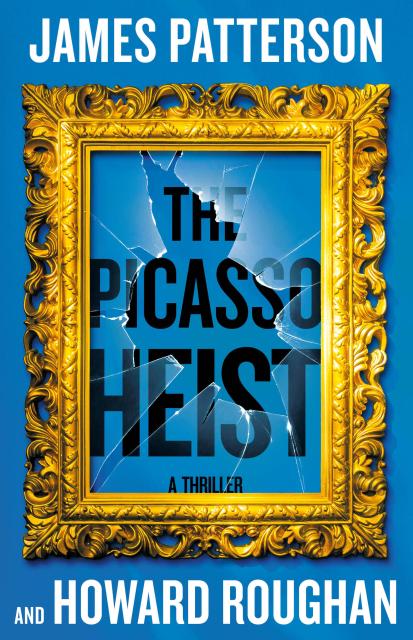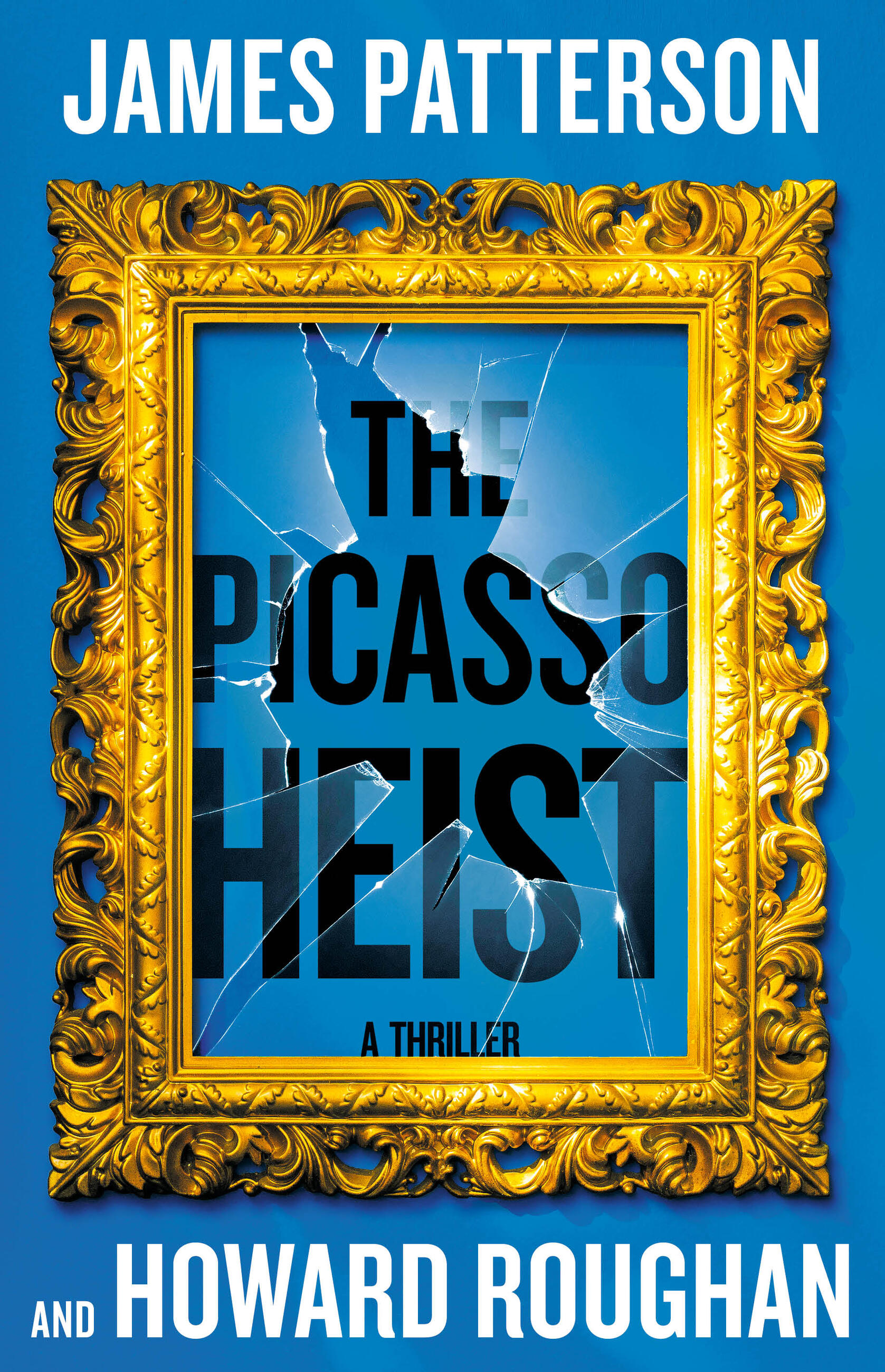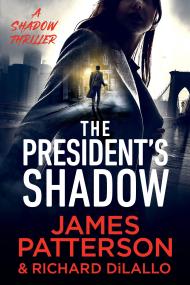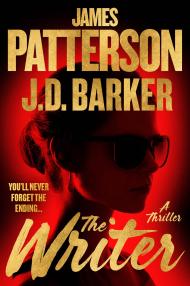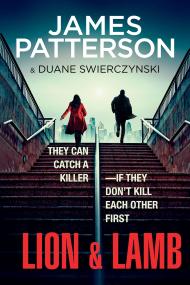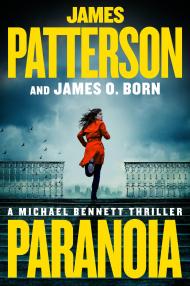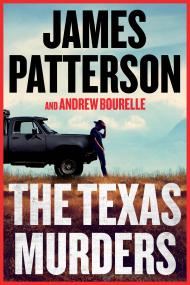The Picasso Heist
A Thriller
Contributors
Formats and Prices
- On Sale
- Oct 27, 2026
- Page Count
- 400 pages
- Publisher
- Little, Brown and Company
- ISBN-13
- 9781538758458
Price
$19.99Price
$25.99 CADFormat
Format:
- Trade Paperback $19.99 $25.99 CAD
- ebook $14.99 $19.99 CAD
- Hardcover $32.00 $42.00 CAD
- Audiobook Download (Unabridged) $24.99
- Trade Paperback (Large Print) $34.00 $45.00 CAD
Buy from Other Retailers:
“Weeks before thieves broke into the Louvre, James Patterson started promoting an upcoming jewelry heist novel. The Picasso Heist is now ripped-from-the-headlines relevant.” —USA Today
A $100 million painting.
A previously unknown Picasso is discovered in the attic of a French villa.
Everyone wants to possess it.
Filthy-rich Manhattan art people. Organized crime bosses. Power-hungry government officials. A notorious forger. A glamorous twenty-two-year-old art thief.
Only one person knows how to take it.
She’s the rival none of the power players see coming.
Genre:
-
"Weeks before thieves broke into the Louvre, James Patterson started promoting an upcoming jewelry heist novel. The Picasso Heist is now ripped-from-the-headlines relevant."USA Today
What's Inside
•••
Chapter 1
TENNIS, ANYONE?
Growing up, I remember my mother really wanting me to learn how to play the sport. She never asked if it was actually something I wanted to do, and not once did I express even the slightest interest in setting foot on a court. Still, for my twelfth birthday, she handed me a pink envelope with my name, Halston, spelled out in rainbow-glitter glue, and inside was a card announcing that I’d been signed up for a dozen tennis lessons at the local YWCA.
Honestly, I think my mother simply liked the idea of having a daughter who played tennis. It conveyed normalcy, as if we were your typical upper-middle-class family living in Westchester, New York. (Spoiler alert: We weren’t.)
But that’s what most alcoholics do, and that’s why my mother used to bury her empty liquor bottles at the bottom of our recycling bins: They try like hell to hide the truth. Or, better yet, they construct their own reality. So whether or not I was having fun playing tennis didn’t seem to matter much to my mother. It looked good, like she was being a good parent. Who cared if I enjoyed it? (Spoiler alert: I didn’t.)
Still, I never missed a single one of those tennis lessons. I learned how to play, and that of course included learning how to keep score. It’s ten years later, I’m twenty-two, and I haven’t picked up a racket since then. But I still know how to keep score.
And that’s where this story begins.
“Skip, talk to me. How’s the volume?” I whisper, testing the level in my earpiece, which is hidden by the blond wig underneath my baseball cap. I’m in Queens at the Billie Jean King National Tennis Center, right next to Citi Field, where the Mets play, so I’m wearing a Mets cap. This whole operation is about blending in.
“Volume’s good,” I hear back in my ear, “although I’m getting a little static, and you broke up on me there for a sec — ”
Skip’s voice suddenly cuts out, and I start dropping F-bombs, thinking we’re screwed. Skip laughs. He’s messing with me. That’s what older brothers do. He can hear me crystal clear in his hotel room at the W Hoboken over in New Jersey. The hotel has good Wi-Fi, over 100 Mbps. More important, at least according to Skip, it’s got a kick-ass bacon cheeseburger on the room-service menu.
“You logged in?” I ask.
“Yeah,” says Skip.
“Are they done warming up?”
“Yep. They’re just about to start.”
It’s day two of the US Open tennis tournament, still the first round in a crowded field of over two hundred men and women. That means the most matches are being played on the most courts with the most chair umpires being used, including none other than the man of the hour, Lucas Montgomery.
Lucas is a very tall, lanky Australian in his late fifties who doesn’t so much sit in his umpire chair as fold himself into it, contorting his body so his bended knees are nearly as high as his chest. Perched above midcourt, he looks like a human accordion. I absolutely love Lucas. I’d follow him anywhere, and this summer, after graduating college, I literally have. The Mallorca Championships, Wimbledon, the Swiss Open Gstaad. What a great way to see the world, and all of it paid for with wagers placed and won in split seconds.
courtsiding (verb): Transmitting real-time information from a sports event (especially a tennis match) for the purpose of gaining a betting advantage
In other words, if we can place a bet online before the bookmakers adjust their real-time odds, we have the upper hand. Advantage us. All it takes is that certain chair umpire who officially updates the score after each point a teeny bit slower than I update Skip on his laptop at the hotel. Someone like Lucas Montgomery, aka Slow Hand Luke.
Is courtsiding against the law? Technically, no. Just don’t try telling that to the guys who run the online betting site offering the highest limits for live, in-match betting. That crew tends to have a slightly different opinion about courtsiding, one that they’d be more than happy to make me painfully aware of — and I do mean painfully— should they ever get the chance. Like today, for instance.
Because today I’m going to make a mistake. A big mistake. Huge.
The kind that will forever change the rest of my life.
I’m going to get caught.
•••
Chapter 2
“FIVE, RED,” I whisper just loud enough so Skip can hear me over the cheering crowd.
Five as in five hundred dollars. Red as in the Russian. I never bet during the first few games of a match when the two players are feeling each other out. But once they settle into the first set, I pounce.
Red’s opponent is Green, a Brazilian. Flag colors are faster than names.
Lucas, snug in his umpire chair, maneuvers his long arm like a crane and taps his touch screen right as I relay the bet, but I’ve beat him by a breath. As he announces the score I hear back from Skip. “In,” says my brother. He got the bet in before the odds changed.
We’ve got five hundred bucks on Red, the Russian player, to win the game. He’s now ahead, 40–30, but our payoff reflects the longer odds of 30–30. Just like that, we’ve got a better chance of winning with a bigger payout.
Is it guaranteed? No. Green could win the next point, taking it to deuce, then win two more points in a row after that to take the game. But the chances of that happening are not nearly as good as the chances of Red prevailing. Gambling is about one thing and one thing only: Leverage. You have it or you don’t.
We have it. Red wins the game and our account gets credited
$1,060 — $500 back for the initial wager, plus $560 profit. And now it’s on to the next game and the next bet. That is, until I hear the voice to my right.
“Good match so far,” the man says, leaning slightly toward me. “Very entertaining, no?” He’s got a thick Eastern European accent. His breath reeks of cigarettes, two packs a day.
I know he wasn’t sitting there a minute ago. Now he is. That’s what I get for being so focused on placing my bet in time.
“Yeah. It’s pretty good tennis,” I answer, staring straight ahead. I don’t look at him.
“Who are you rooting for?” he asks.
It’s a harmless question but I know this guy’s anything but harmless. He’s not trying to be menacing. He doesn’t have to try. It clearly comes naturally. Keep it together now, Halston. Breathe in, breathe out…
“I don’t know who I’m rooting for,” I say. “I guess I don’t really care who wins.”
I can feel and smell him leaning in even closer. “Yeah, but if you had to bet,” he whispers, “who would you bet on?”
For the first time, I turn to him. He’s got greasy dark hair combed across his forehead in a guillotine-like slant. He’s smiling. He’s also big. No, thick is a better word. His forearms, folded tight against his chest, look to be the size of ham hocks. I’m guessing they’re covered in tattoos, but I can’t see them because he’s wearing a tragically ugly teal windbreaker. Never mind there’s not a cloud in the sky, we’re in late August, and it’s pushing ninety degrees.
“What do you want?” I ask.
What he wants first is to show me the gun he’s got tucked in his waistband underneath the windbreaker. The second thing he wants is my earpiece. He sticks out his palm. “Hand it over,” he says. “Along with your phone.”
The next game in the match has just gone to deuce on Green’s serve. I would’ve been placing another bet after the following point. How much of this are you hearing, Skip?
I glance down again at the gun the guy’s got tucked into his waistband and then back up at his eyes. I’m wearing sunglasses; he’s not. He wants me to be able to see his eyes. I could play stupid and ask, What ear piece? But stupid won’t get me anywhere. Coy is a different story, though. Coy buys me a little time.
“We both know you’re not about to shoot me in front of all these people, and you’re not going to throw me over your shoulder or drag me out of here kicking and screaming,” I say. “So what’s to stop me from standing up and heading for the first cop I see? There’s lots of them around here, in case you haven’t noticed.”
He laughs. “Such a clever girl, huh? But we also both know you’re not going to do that.”
“Why not?”
“Because we found you, that’s why. Now we’ll always be able to find you, Halston.” He really enjoys saying my name, showing me that he knows it. “Come with me now and we won’t hurt you,” he says. “But if you don’t come with me now? We’ll definitely hurt you.”
I think it over for a few seconds, or at least I act as if that’s what I’m doing. My mind’s been made up since the very second this guy sat down. Meanwhile, Red wins the next point with an overhead slam, the ball careening into the stands. I look up at Lucas, crammed in his umpire chair, as he methodically inputs the score change. Damn; I could’ve placed ten bets in the time that took.
But my courtsiding days are over for now. I’ve officially been caught.
I take out my earpiece and hand it and my phone over to my new friend in the ugly teal windbreaker.
“Okay, you win,” I say. “Let’s go.”
•••
Chapter 3
HE FOLLOWS ME out of the stands, staying a few steps behind me and talking only when he needs to tell me left, right, or keep going straight. I glance back over my shoulder just once, not at his lumpy face but down at his Gucci-wannabe shoes with inch-high heels that scrape on the pavement, first one, then the other, sounding like a rusted metronome.
“Where do you think you’re going?” he asks when I make a sharp turn that he didn’t instruct me to take.
“I’m thirsty,” I answer.
He looks and sees the water fountain against the wall to our left. What I don’t think he sees is the security camera about twenty yards away from it. He of course knows there are cameras everywhere at the tournament but he most likely doesn’t realize that this is how the police will know I didn’t leave alone. I had company, and it’s the guy cooling his cheap one-inch heels behind me while I bend at the waist and take a long sip. No one’s ever going to mistake the two of us for boyfriend and girlfriend. I turn around, take another glance at his greasy hair and that god-awful teal windbreaker. Ugh. At least I hope not.
He falls in step behind me again, definitely closer now. “Up ahead, just outside the gate,” he says. “The Uber lot.”
We leave the grounds, passing a couple of cops along the way. I don’t look at them, staring instead at the huge black Cadillac Escalade with tinted windows that’s idling behind a couple of rows of late-model Nissan Sentras and Toyota Camrys doing pickups and drop-offs. The most unsurprising sentence of the day is when he announces that our destination is the Escalade. As we near it, he walks in front of me, then opens the back passenger door and points inside. The second I get in, I see another huge, hulking guy sitting by the opposite window; he tells me to slide over. He’s also got an Eastern European accent, although not quite as thick. I move to the middle seat, and Mr. Ugly Teal Windbreaker climbs in next to me and slams the door shut.
And just like that, I’m the meat in a goon sandwich.
Faster than you can say rodeo, my wrists are zip-tied tight together. My wig and sunglasses are yanked off, a black pillowcase is pulled over my head, and I officially can’t see where we’re going. The driver, who I didn’t get a good look at, takes off, but not before turning up the radio in case I decide to scream. Why they didn’t gag me too, I don’t know. Then again, who says a mob abduction has to be an exercise in airtight logic?
I’m not about to scream. There’s no point. Besides, it would only make it hotter underneath this pillowcase, the fabric of which likely possesses the thread count of industrial sandpaper. I remain silent, as do the other three, while Bruce Springsteen belts out “Rosalita.” Only when we speed up and merge onto what I’m guessing is Grand Central Parkway does the radio get turned down. Still, no one talks until about twenty minutes later when we veer onto an exit, slowing down. That’s when I make an announcement. “I have to pee,” I say.
I don’t really have to go to the bathroom but it’s the quickest way to figure out the pecking order among these guys. Whoever responds to me is a little higher on the organizational chart than the other two. He’ll speak up because he knows it’s his decision whether or not we stop for me to pee. Already, though, I can rule out the driver. Drivers are always entry-level. My money’s on the guy to my left, whose only job thus far has been to sit there and do nothing.
Sure enough: “Hold it in,” he tells me. “We’re almost there.”
No surprise, we’re actually not. We’re still driving after half an hour. By the time we’re done taking all the turns and exits, I don’t even know what borough we’re in anymore or even if we’re still in New York. Finally we come to what I think is another red light, only it isn’t. Wherever we are, we’ve arrived. I listen to the loud, mechanical cranking of a heavy garage door rising. We creep forward only a little farther than the length of the Escalade before the cranking resumes: the same garage door closing. The driver cuts the engine, and the pillowcase gets pulled off my head. Before my eyes can adjust, I’m being manhandled out of the back seat.
A couple of hours ago, I was on the pristine grounds of the US Open making my way through the champagne-sipping, upper-crust crowd gathered to spectate the sport of kings. Now I’m being dragged to a rusted metal folding chair in an empty warehouse that’s layered in dust and smells like a dumpster. I spot a second black Escalade, and for a moment, I think my eyes still haven’t adjusted and I’m seeing double. I’m not. There’re two of them. One was already here, waiting. A man steps out of the shotgun seat of this second Escalade and walks toward me as I get pushed down into the folding chair with my hands still tied. He’s wearing black jeans, a black T-shirt, and a look of utter disgust.
Odds are he plans to kill me.

